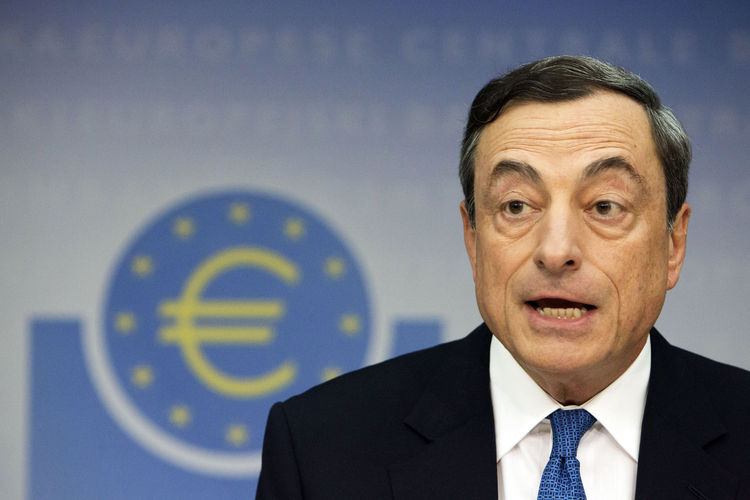- ECB Says It Can Shield Euro Area From Global Finance Instability
The European Central Bank is confident it will be able to continue shielding the euro area from the risk of a sudden correction in asset prices, after political events such as the election of Donald Trump threaten to increase volatility in coming months.
“We are certainly seeing a correction coming from the U.S.,” ECB Vice President Vitor Constancio said on Thursday in an interview with Bloomberg TV’s Matt Miller. “The ECB will continue to exert its stabilizing role, so I don’t think there will be significant contagion to Europe.” Constancio spoke on the occasion of the publication of the ECB’s twice-yearly Financial Stability Review.
The report warns that the risk of an abrupt global market correction has intensified on the back of widespread political uncertainty, posing a threat to banks, stability and economic growth. While the policies of incoming President Trump may lead to higher spending and faster inflation in the U.S., their effect on the euro area is difficult to gauge given the possibility of protectionist tit-for-tats and higher chances of populist victories in votes across the continent.
“More volatility in the near future is likely and the potential for an abrupt reversal remains significant,” according to the Frankfurt-based central bank. “Elevated geopolitical tensions and heightened political uncertainty amid busy electoral calendars in major advanced economies have the potential to reignite global risk aversion and to trigger a major confidence shock.”
For Constancio, U.S. expansionary policies may be accompanied by “some protectionist measures which would then reduce the impact on other parts of the world.” He said the recent rally in asset prices will only become sustained in Europe if inflation and growth in the region pick up, while a recent appreciation of the dollar won’t have a major effect on the continent as it did for emerging markets.
The U.S. elections capped a period of unexpected political results that started with the U.K.’s vote to leave the European Union, and that could continue as the region’s main economies face elections in coming months where populist and nationalist movements are slated to make inroads.
Compared to its previous report six months ago, the central bank increased its concern over a “global risk repricing leading to financial contagion, triggered by heightened political uncertainty in advanced economies and continued fragilities in emerging markets.”
While the currency bloc’s economy and financial system have remained resilient so far, more political instability in coming months may put pressure on weak banks and countries with high sovereign debt. The central bank flagged the risk of a return of market pressure on the region’s weakest countries as the spread of populism hinders reforms.
“Higher political uncertainty may lead to more domestically focused, growth-hindering policy agendas,” the report said. “This, in turn, could delay much needed fiscal and structural reforms and could in a worst-case scenario reignite pressures on more vulnerable sovereigns.”
Vulnerable Banks
“We are in a new phase of weaker world trade” Constancio said in a press conference. “If, on top of that, there would be a wave of protectionist measures, world trade, and world growth would suffer.”
The ECB vice president confirmed that the despite the risk build-up, the ECB still sees euro-area growth around 1.6 percent in 2017, with inflation rising to about 1.25 percent in the spring. Even so, he stressed that some of the region’s lenders remain weak and need to continue addressing excessive costs and a high burden of non-performing loans.
“Vulnerabilities remain significant for euro-area banks,” the central bank said in its report. “Profitability prospects overall remain low across the euro area in a subdued economic growth environment.”
Even so, the U.S. election results spurred a pick-up in bank stocks as investors saw the risk of ever tighter regulation recede. If sustained, this would “provide some support for euro area banks’ profitability prospects,” according to the ECB.


 Forex3 weeks ago
Forex3 weeks ago


 Naira2 weeks ago
Naira2 weeks ago
 Billionaire Watch2 weeks ago
Billionaire Watch2 weeks ago




 Naira2 weeks ago
Naira2 weeks ago




 Naira2 weeks ago
Naira2 weeks ago




 Naira1 week ago
Naira1 week ago




 Naira4 weeks ago
Naira4 weeks ago




 Naira3 weeks ago
Naira3 weeks ago

















